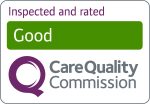May 13, 2025
Top tips for managing PCOS naturally
We want to speak directly to the many women living with Polycystic Ovary Syndrome (PCOS). It’s more common than people think—affecting about 1 in 10 women—and it can be both physically and emotionally challenging.
PCOS is a hormonal condition that can affect ovulation, periods, weight, skin, hair growth, and even fertility. But the silver lining? There’s so much you can do to manage symptoms naturally—and take back control of your health.
What’s Really Going On in PCOS?
At the root of PCOS are hormonal imbalances, often including:
- High levels of androgens (male-type hormones)
- Irregular ovulation or no ovulation
- Insulin resistance, which makes it harder for the body to regulate blood sugar
This can lead to symptoms like weight gain (especially around the middle), acne, unwanted hair growth, fatigue, and irregular cycles.
The great news is, targeted lifestyle changes—especially around food, movement, and stress—can make a huge difference.
Our Top Tips for PCOS Management
- Balance Your Blood Sugar with Smart Nutrition
Because insulin resistance plays a big role in PCOS, what and when you eat can make a big difference.
- Don’t skip meals—it can cause blood sugar swings and hormonal stress.
- Choose low-GI, slow-digesting carbs like oats, sweet potatoes, brown rice, and quinoa.
- Pair carbs with protein and healthy fat (e.g. wholegrain toast + avocado + egg).
- Limit refined sugars, white bread, pastries, and ultra-processed snacks.
Chequers Tip: Build your plate with the 3 Ps—Protein, Plants, and Portion Control.
- Cut Back on Sugar, Gently and Gradually
Reducing added sugars can lower insulin levels, reduce cravings, and support weight loss.
- Swap fizzy drinks for sparkling water with lemon or mint
- Switch from sugary cereals to porridge with cinnamon and seeds
- Watch for hidden sugars in yoghurts, sauces, and energy bars
Cinnamon, chia seeds, and fibre-rich foods can also help reduce blood sugar spikes.
- Move to Improve Insulin and Mood
Exercise improves insulin sensitivity, reduces inflammation, and supports hormonal balance.
- Aim for 30 minutes, 5 days a week, a brisk walk, cycle, or dance class works wonders.
- Add strength training or resistance workouts twice a week to boost metabolism and muscle mass.
- Even light activity (like walking after meals) helps stabilise blood sugar and reduce fatigue.
Bonus: Yoga and Pilates can support stress reduction, core strength, and hormone balance.
- Support Hormones with Food and Lifestyle
Hormonal balance is about more than just calories—it’s about nourishing your body.
Try including:
- Omega-3 fats (from salmon, flaxseed, walnuts)
- Zinc-rich foods (like pumpkin seeds, chickpeas)
- Magnesium (leafy greens, almonds, dark chocolate in moderation)
- B vitamins (wholegrains, eggs, leafy veg)
Also important: quality sleep, managing stress, and setting boundaries to avoid burnout. These factors play a big role in cortisol levels, which affect PCOS symptoms too.
If you’re considering supplements like inositol or vitamin D, speak with a healthcare professional first—they can be helpful in the right circumstances.
- A Word on Weight
Many women with PCOS struggle with weight but this is not your fault. Insulin resistance, hormonal shifts, and inflammation all make it harder.
Focus on:
- Gentle, sustainable habits
- Body-positive movement
- Finding joy in your meals and your self-care
Losing just 5–10% of your body weight (if needed) can restore periods, support fertility, and reduce symptoms.
Final Thoughts from us
PCOS is complex, and no two journeys look the same. But with the right tools and support, you can absolutely feel better in your body.
Start small. Choose nourishing foods, move a little every day, protect your energy and give yourself grace along the way.
If you’re unsure where to begin, speak with your GP, dietitian, or a women’s health specialist. You deserve to feel strong, balanced, and supported.
Until next time,
Chequers
Need a little more support? We’re here.
If this blog has raised questions for you or you’re ready to take the next step in managing your PCOS, we’re here to help at Chequers.
You can book a private GP appointment with us for personalised guidance, hormone blood tests, or specialist referrals. We also offer ultrasound scans and a full range of diagnostic support, all under one roof.
Whether it’s for clarity, confidence, or a proper plan, we’re just a click away.
Book an appointment today or call us to speak with our friendly team.
Take care,
Chequers


